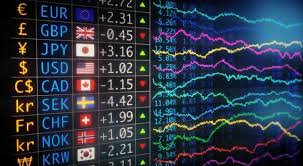Mastering Forex Trading Strategies, Tools, and Insights

The forex market, or foreign exchange market, is a global decentralized market where currencies are traded. As one of the largest and most liquid financial markets in the world, it offers traders immense opportunities for profit, but also presents a fair share of risks. For those eager to dive into this dynamic arena, understanding fundamental concepts and strategies is crucial. In this article, we will explore various aspects of forex trading, including essential strategies, tools, and insights to help you excel in this highly competitive market. If you’re interested in reliable trading platforms, consider checking out trading forex Trading Broker ID.
Understanding Forex Trading
Forex trading involves the buying and selling of currency pairs, where one currency is exchanged for another. It operates 24 hours a day, five days a week, across major financial centers around the globe, making it accessible at almost any time. The major currency pairs include EUR/USD, GBP/USD, and USD/JPY, but there are numerous minor and exotic pairs available too. The key to successful trading lies in understanding how currency values fluctuate based on various economic indicators, geopolitical stability, and market sentiment.
Key Concepts in Forex Trading
Before hopping into forex trading, it’s essential to familiarize yourself with key terminology:
- Currency Pair: This represents the value of one currency against another, denoted as USD/EUR or GBP/JPY, for example.
- Pip: Short for “percentage in point,” a pip is a unit of measurement for currency movement.
- Leverage: This allows traders to control larger positions than their actual investment, amplifying both potential gains and losses.
- Spread: The difference between the bid price (the price at which you can sell a currency pair) and the ask price (the price at which you can buy it).
Essential Forex Trading Strategies
1. Technical Analysis
Technical analysis involves analyzing historical price data to identify patterns and trends. Traders use charts and various indicators, such as moving averages, RSI, and MACD, to make informed decisions about entry and exit points. Learning to read charts effectively is a pivotal skill for any forex trader.
2. Fundamental Analysis
Fundamental analysis considers economic indicators, interest rates, and news events to predict currency movements. For instance, a country’s GDP growth, employment rates, and interest rate changes significantly affect its currency’s strength. Traders who grasp fundamental analysis can anticipate market reactions to various news events.
3. Swing Trading
Swing trading is a medium-term strategy where traders hold positions for several days to benefit from expected price moves. This approach allows traders to capitalize on short to medium-term price fluctuations and is suitable for those who cannot dedicate their entire day to trading.
4. Day Trading

Day trading involves making multiple trades within a day, taking advantage of small price movements. Day traders close all positions before the market closes to avoid overnight risks, employing technical analysis and quick decision-making skills.
Risk Management in Forex Trading
Effective risk management is crucial for long-term success in forex trading. Here are some essential tips:
- Set a Stop-Loss: Always use stop-loss orders to automatically close a position at a predetermined level to limit losses.
- Position Sizing: Determine the size of your trade based on your overall account balance and risk tolerance.
- Diversification: Spread your investments across different currency pairs to minimize risk.
Selecting the Right Broker
Choosing the right forex broker is vital for your trading success. Look for brokers that offer competitive spreads, low fees, reliable trading platforms, and excellent customer service. Make sure your broker is regulated by a reputable authority to ensure the safety of your funds. Furthermore, consider the educational resources and tools offered by the broker that can aid in your trading journey.
Tools and Resources for Forex Trading
Numerous tools and resources can enhance your trading experience:
- Trading Platforms: Platforms like MetaTrader 4 and 5 are popular among traders for their advanced charting tools and capability to automate trades.
- Economic Calendar: Stay updated on upcoming economic events that may affect currency prices.
- Trading Signals: Many platforms provide signals that can help traders make informed decisions.
The Psychological Aspects of Trading
Trading isn’t just about numbers; it involves a significant psychological component. Emotional discipline is critical. Traders must manage their emotions and stick to their trading plan, regardless of market fluctuations. Many traders fall prey to greed or fear, leading to poor decision-making. Developing a strong mindset and practicing patience can lead to more consistent results.
Continuing Education and Adaptation
The forex market is continually evolving, influenced by economic changes and technological advancements. Therefore, continuous learning is crucial. Join online workshops, read books, and engage with other traders to improve your understanding and skills. Stay adaptive to changes in market conditions and be open to adjusting your trading strategies when necessary.
Conclusion
Forex trading can be a rewarding endeavor, but it comes with inherent risks. Understanding the market, employing effective trading strategies, and managing risk wisely are fundamental to achieving long-term success. Always conduct thorough research, formulate a trading plan, and remain disciplined. Remember, success in trading does not come overnight; it requires patience, dedication, and continuous learning. As you embark on your trading journey, consider all aspects discussed in this article to enhance your trading performance and decision-making.